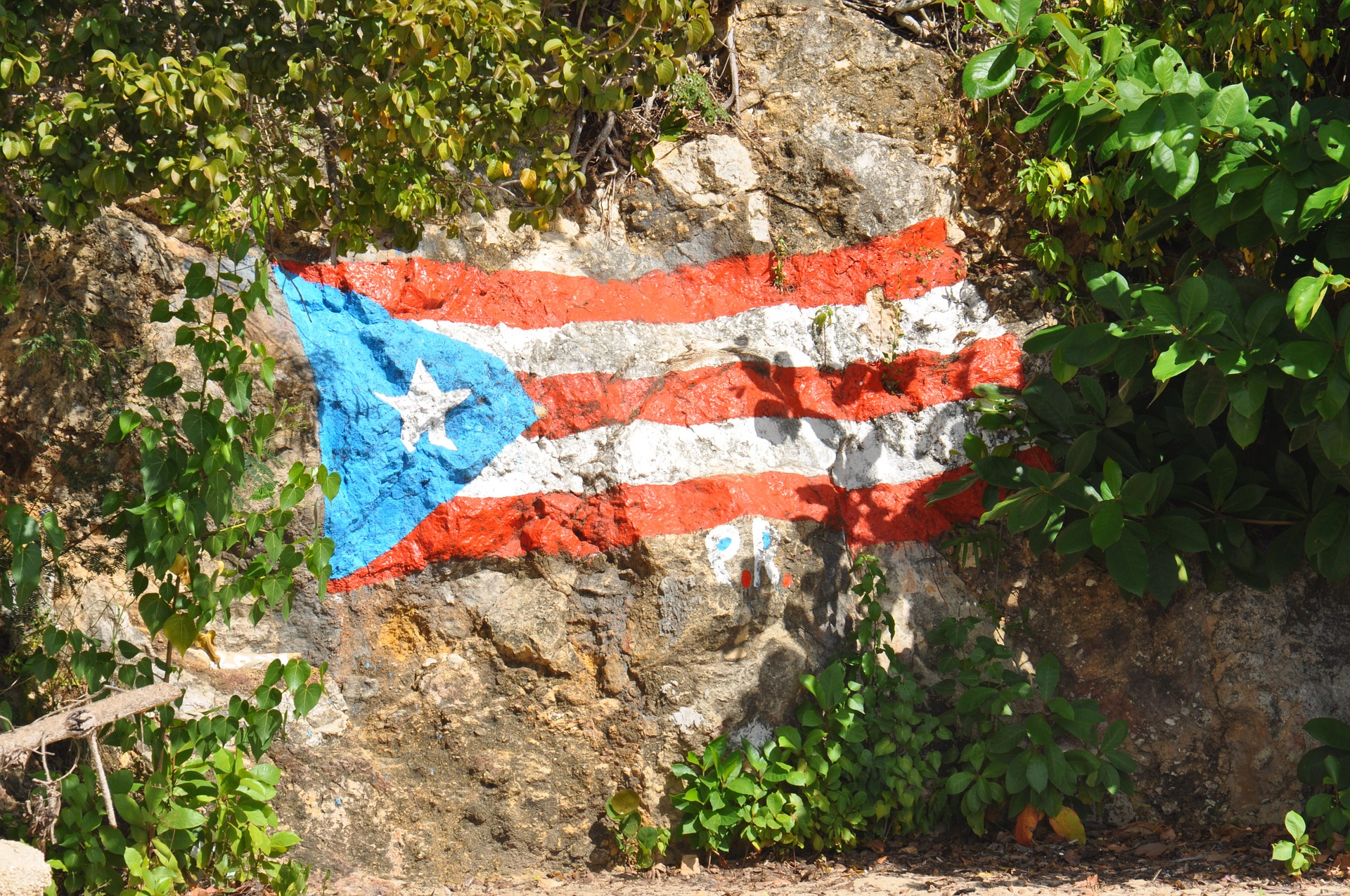30 Puerto Rican Slang Terms That Only Make Sense In The Caribbean

Get our free email course, Shortcut to Conversational.
Have conversations faster, understand people when they speak fast, and other tested tips to learn faster.
More infoWhen we talk about slang from Spanish speaking countries, Puerto Rican slang is quite possibly in a league of its own.
It’s not surprising, really, when you consider that this little Caribbean island is the birthplace of Reggaeton and Salsa music, as well as the Piña Colada – it’s clear that they march to beat of their own drum.
In the post, we will list the 30 most common Puerto Rican slang terms, so that whether you are listening to your favorite reggaeton track (no, we don’t count “Despacito”) or wandering around the capital San Juan, you will be well equipped to understand the local lingo.
Sidenote: This post is the latest post in a series where we explore slang for every Spanish speaking country
- Colombian slang
- Mexican slang
- Venezuelan slang
- Chilean slang
- Argentine slang
- Uruguayan slang
- Guatemalan slang
- Cuban slang
And now, 30 of the most common Puerto Rican slang terms.
1. ¡Ay bendito!
You gotta love this Puerto Rican slang term, as it’s used to express all kind of emotions from happiness, surprise or sadness. The tone you use will dictate how it’s interpreted, similar to how you would say “Oh my god” in English.
- ¡Ay bendito! que alegría verte – OMG! what a joy to see you!
2. Boricua
The name given to people from Puerto Rico, Boricua is Puerto Rican slang for a Puerto Rican person. Whether Boricua by birth or by having grown up in Puerto Rico, even Puerto Ricans living in the mainland United States are proud to call themselves Boricuas.
- Él nació en Puerto Rico, es Boricua – He was born in Puerto Rico, he is Boricua
3. Hanguiar
Puerto Rican slang or spanglish for “hang out”.
- Vamos a hanguiar un rato esta tarde – Let’s hang out for a while this afternoon
4. Broki
The Puerto Rican slang for your friend, which comes from the English word “brother”.
- No hables así de mi broki – Don’t talk like that about my friend
5. Gufear
More spanglish here. You might have noticed that this looks like the English word “Goofy”? Well, the meaning is very similar as it means to fool around or joke around.
- Deja ya de gufear, y ponte a trabajar – Stop joking around and start working
6. Al Garete
A really fun and crazy moment.
- ¡Tu fiesta de cumpleaños estuvo al garete! – Your birthday party was crazy!
7. Chavos
In Mexico, chavos means young people. But in Puerto Rican slang, it’s another word for money.
- No tengo chavos para el taxi – I don’t have any money for the taxi
8. Mamey
This word is very popular, and you’re likely to hear it in a lot of songs. Mamey is the word you need to use when something is very easy to do. Similar to “easy peasy” in English.
- Esto en un mamey. Yo lo puedo hacer – This is easy peasy. I can do it
9. Mano
This is the short version for hermano o hermana which mean ” brother or sister” in Spanish, and it has the same meaning. It can also be used with good friends. This slang is also found in the Dominican Republic.
- Oye mano, vámonos de viaje este fin de semana – Hey buddy, let’s go on a trip this weekend
10. Jartera
Everybody loves a good Jartera. Because when you had a Jartera, it means that you probably ate like a crazy, and your stomach it’s about to explode.
- Que jartera tan buena tuvimos anoche en casa de tu abuela – What a good meal we had last night at your grandmother’s house
11. Bembé
Bembé is actually a religious party, but in Puerto Rican slang, there’s nothing religious about a Bembé, as it’s a big party.
- Nos invitaron a un bembé – We were invited to a party
12. Duro / Dura
This word normally means “hard” but, in Puerto Rican slang means that someone is really good at what they do.
- Ella es una dura bailando – She is the best at dancing
13. Acicalao
Someone who is well dressed, well groomed, who smells fine.
- Voy a acicalarme, porque voy a salir con mi novia – I’m going to dress up, because I’m going out with my girlfriend
14. Tapón
Puerto Rican slang for traffic.
- Hay mucho tapón y voy a llegar tarde – There’s a lot of traffic, and I´m gonna be late
15. Bregar
Breagar normally means to struggle, or deal with something. But in Puerto Rico, this word is used to describe being busy doing something that is not necessarily fun.
- Estoy bregando con algo de última hora en el trabajando – I’m struggling with something last minute at work
16. Jumeta
When you party hard, and drink too much, it’s likely that you’ll end up Jumeta, which is another word for drunk.
- Ellos agarraron una buena jumeta en tu fiesta – They were really drunk at your party
17. Abombao / Abombada
It is used to explain that something, almost always referring to food, is rotten or damaged.
- Bota esa comida que ya está abombada – Throw away that food, is already damaged
18. Brutal
Sounds and look like “brutal”, which in English is normally a bad thing. In Puerto Rico, it means that something is beyond awesome.
- Ayer en la disco la pasamos brutal – Last night at the disco we had a great time
19. Nene / Nena
In Puerto Rico, you will never hear the locals say ” niño or niña”, instead they’ll used the slang terms it’s nene for little boys and nena for little girls.
- Dile a la nena que venga a cenar – Tell the girl to come to dinner
20. Revolú
Another word for a mess.
- Mira ese revolú que tienes en tu cuarto – Look all that mess in your room
21. Jíbaro
Jíbaro is the name for the people who live in the countryside, in the island of Puerto Rico.
- ¿Y tú por qué estás vestido como un jíbaro? – Why are you dressed like a country guy?
22. Parquear
Once again, Spanglish for parking.
- Voy a parquear el auto – I’m going to park the car
23. Birras
Sounds like beer, right? Well, yes, it is another word for beer.
- Te invito una birra esta noche – I’ll invite you some beers tonight
24. Gato/Gata
In Spanish, gato is normally a male cat and gata is a female cat.
In Puerto Rican slang, it can also have this meaning, but it’s also used to talk about a man or women who is very good looking.
- Mira ese gato que viene ahí. Que guapo que está – Look at that handsome man that comes there. How gorgeous he is
25. Ahorita / Orita
These words mean “right now” in almost all Latin American countries.
But not in Puerto Rico. Ahorita or orita can mean llater, but not right now, maybe later is a day, or a week, or 6 hours. So if someones tells you that they’ll meet come “ahorita”, it’s best to ask for clarification.
- Ahorita nos vemos – I’ll see you later
26. Bochinche
Another word for gossip.
- Alguien me dijo un bochinche de la vecina muy malo – Someone told me a very bad gossip about the neighbor
27. Embuste
When someone is telling a lie, you say it is an embuste
- Ayer conocí a Luis Fonsi en la disco. Cállate, eso es embuste – Yesterday I met Luis Fonsi at the Disco. Shut up, that’s a lie
28. Perreo / Perrear
The Boricuas are mostly proud of this word, and you’ve probably heard it in some current reggaeton songs. Perreo is actually dancing like a madman, without stopping. Dance very fierce. But, now, it’s actually some kind of dirty dancing.
- Vamos a la disco que quiero perrear – Let´s go to the disco, ´cause I wanna dance
29. Fó
There is no direct translation for this one. It’s Puerto Rican slang for something that smells really bad, and must always be accompanied by a gesture or look of disgust on the face, or it won’t work.
- Fó! Huele muy mal aquí – It smells really bad here
30. Come mierda
Yep, I know you have seen this word before. In Cuba, they use it too. “Eat poop”, but in Puerto Rico, this expression is used to talk about someone very arrogant with an unfriendly character.
- ¡Oye! Deja de comportarte como un comemierda con tu novia. – Hey! Stop being an idiot with your girlfriend

Unsure what to learn next?
Download the exact curriculum that thousands of BaseLang students have used to become fluent in Spanish.
Download Guide Now!



